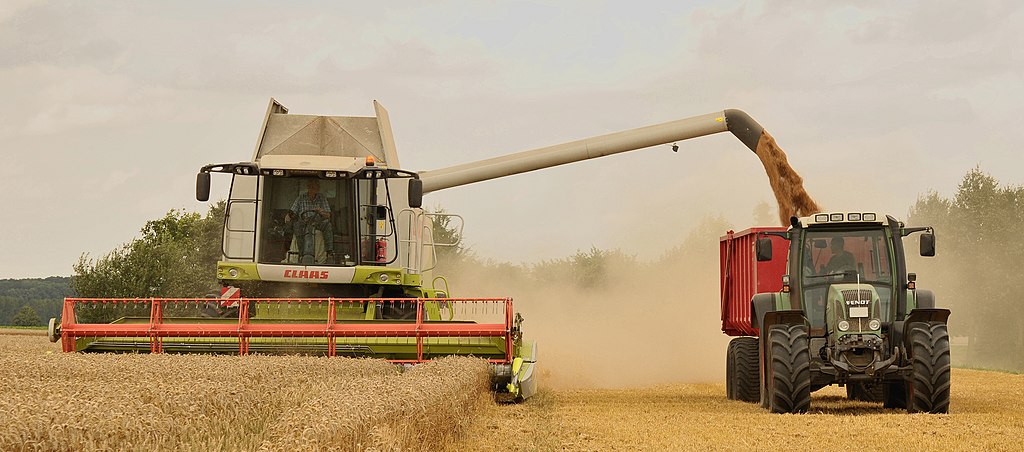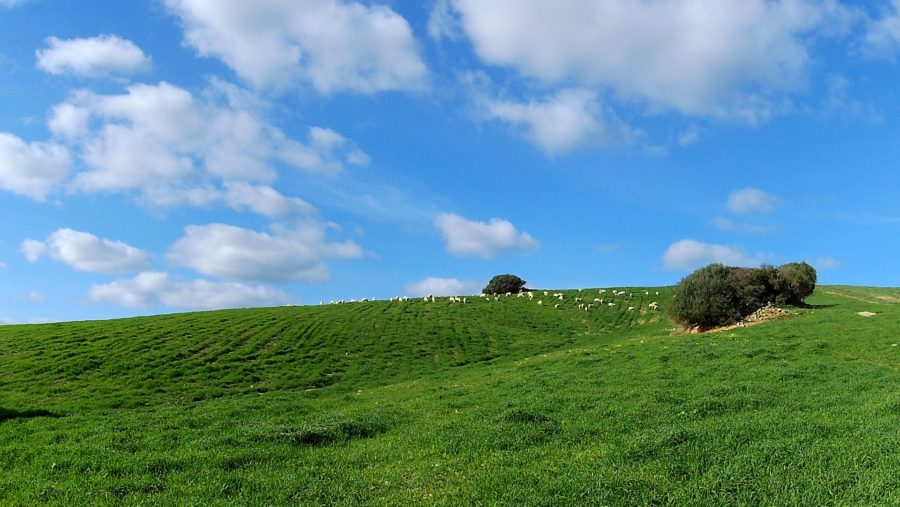
Real food is how our bodies are interconnected to the web of life on Earth. We are so deeply interconnected that our microbiome forms a continuous, reciprocal macro-organism with the microbiome of the soils. We are so connected that the debilitation of health of one aspect of our food web, goes on to have a direct effect on our health.
But since the advent of industrialization, we have been systematically displaced from the deep, inherent relationships we hold with our food. This systemic displacement of our relationships with the Earth, and with our food systems, has now resulted in multiple overlapping global emergencies: the ecological crisis, the health crisis, and livelihood crisis. These multiple emergencies are not separate, they are interconnected and they have their root in a growing dependence on a dysfunctional paradigm.
The industrial, globalized food system, based on toxic chemicals, monocultures and unsustainable globalized supply chains, represent a denial of the fact that our health is a continuum coming from the health of our planet. From the biodiversity in the soil, of our foods and in our gut microbiome. The destruction of biodiversity, thanks to industrial agriculture, is now contributing to disease and sickness for the Earth and her beings, including humans. The planet’s health and our health are inseparable.
Through the imposition of industrial systems small farmers and local food communities have deliberately been destroyed in favor of corporate power, and the health of people, the planet and food systems has been purposefully disregarded. Now the very corporations who have perpetuated the Earth’s destruction are attempting to try and convince us they hold the solutions to our multiple crises.
In order to erase the last remaining small farmers, corporate-sponsored narratives are now pushing for the reduction of complex ecological collapse, and climate change, into dualistic narratives around plant versus animal, instead of addressing the larger crisis of how current industrial practices are destroying the Earth’s ecosystems. In these false dichotomies animals are now being blamed instead of industrial systems as a whole, for the food system’s impact on climate and health.
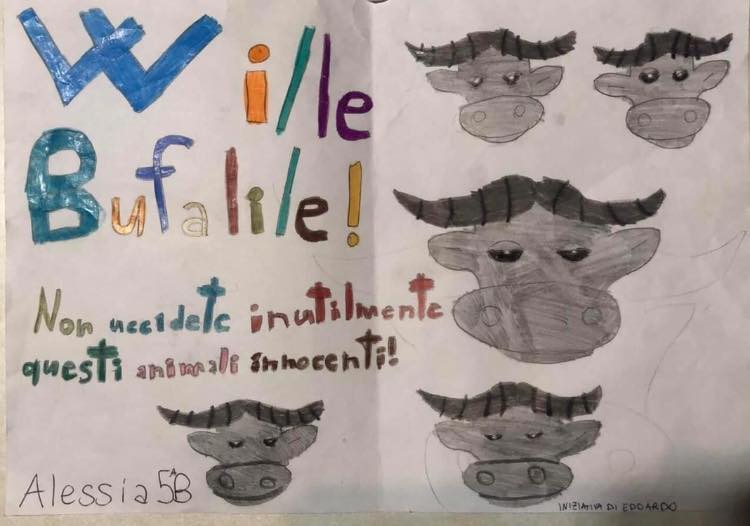
Source: Altragricoltura
This has been the case with the Brucellosis disease spreading through buffalos in Italy. A disease caused by the industrial CAFOs of buffalos, which is now being used as an excuse to push false solutions to climate change and food shortages. Small-scale farmers were forced to cull their animals due to the diseases caused by industrial production, effectively destroying the livelihoods of the real small-scale producers of mozzarella. Amid this destruction of real food, and real food culture, Fake Food companies, like German start-up company Formo, received record funding to produce lab ricotta and mozzarella. Allowing them to take advantage of the destruction already caused by the industrial system.
The integral, complex, and interconnected husbandry of animals in many traditional cultures around the world is now being lumped in with industrial animal production, effectively erasing the importance of these traditional land-based cultures. In these false climate narratives, animals have also been reduced to mere products for protein, that can simply be replaced by more efficient technologies such as lab-engineered products.
Climate reductionist narratives and their false solutions are effectively ignoring the multidimensional and essential roles animals can fill in diverse agroecosystems. It thus completely ignores our relationship with nature and creates a rift separating humans from nature and food from life. While it is a fact that all industrial production systems, whether for plants or animals, are heavily responsible for ecological collapse, agroecological and small-scale systems are not one in the same.
So, are we going to look to those who regard land, food, and life as extractible, commodifiable, profitable objects to solve the problem which stems from the fundamental disconnection to the Earth and Life? Or do we look to the generational stewards, the indigenous people who speak for their lands, the independent scientist evolving the science of agroecology, and the careful small farmer? Who are the ones that can teach us how to care for the Earth?
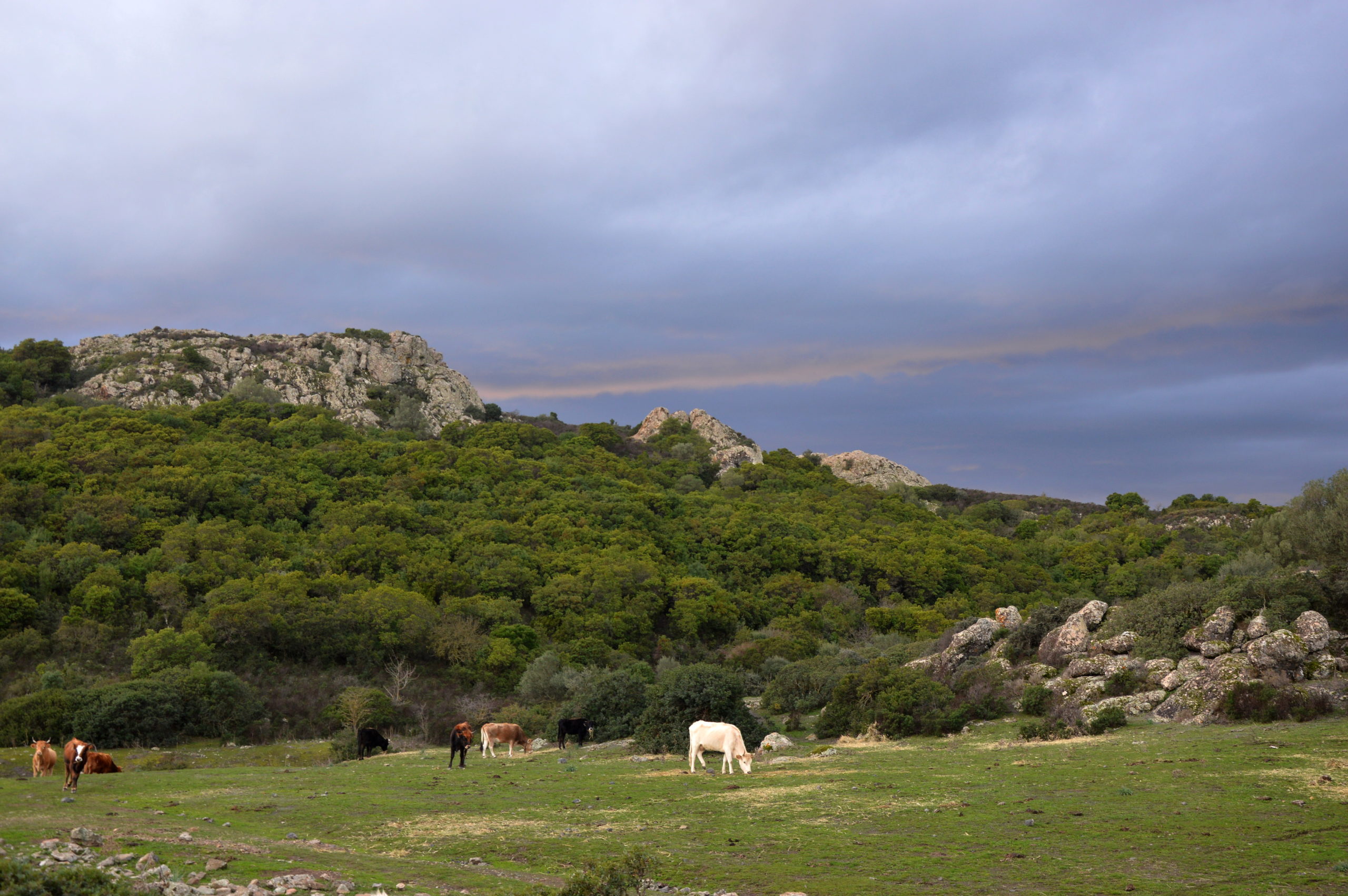
Sardinia as an Example Under Threat
One example of where this conflict is raging is the island of Sardinia. For centuries human settlements in Sardinia have been characterized by the presence of shepherds who have a long-standing tradition of co-existence and integration between human communities, animals and the surrounding ecosystem. Animals have always been part of community life, culture and traditions, especially in relation to food and agriculture.
In the Sardinian context, many define the local food systems as agro-pastoral systems, highlighting the inherent integration of pastoralism (e.g. traditional animal husbandry) and agricultural practices. Moreover, Sardinia is an emblematic area of inquiry in terms of complex and genuine food systems in the Italian context. The region has the highest number of traditional shepherds and is world famous for its historic dairy culture and diversity in food products. Animals are intricately intertwined with local culture, traditional food and the islands’ identity, as many shepherds see themselves as custodians of the agro-pastoral history and tradition of their regions. Through their work and practices they maintain their language and typical food systems alive and pass their knowledge to the next generations.
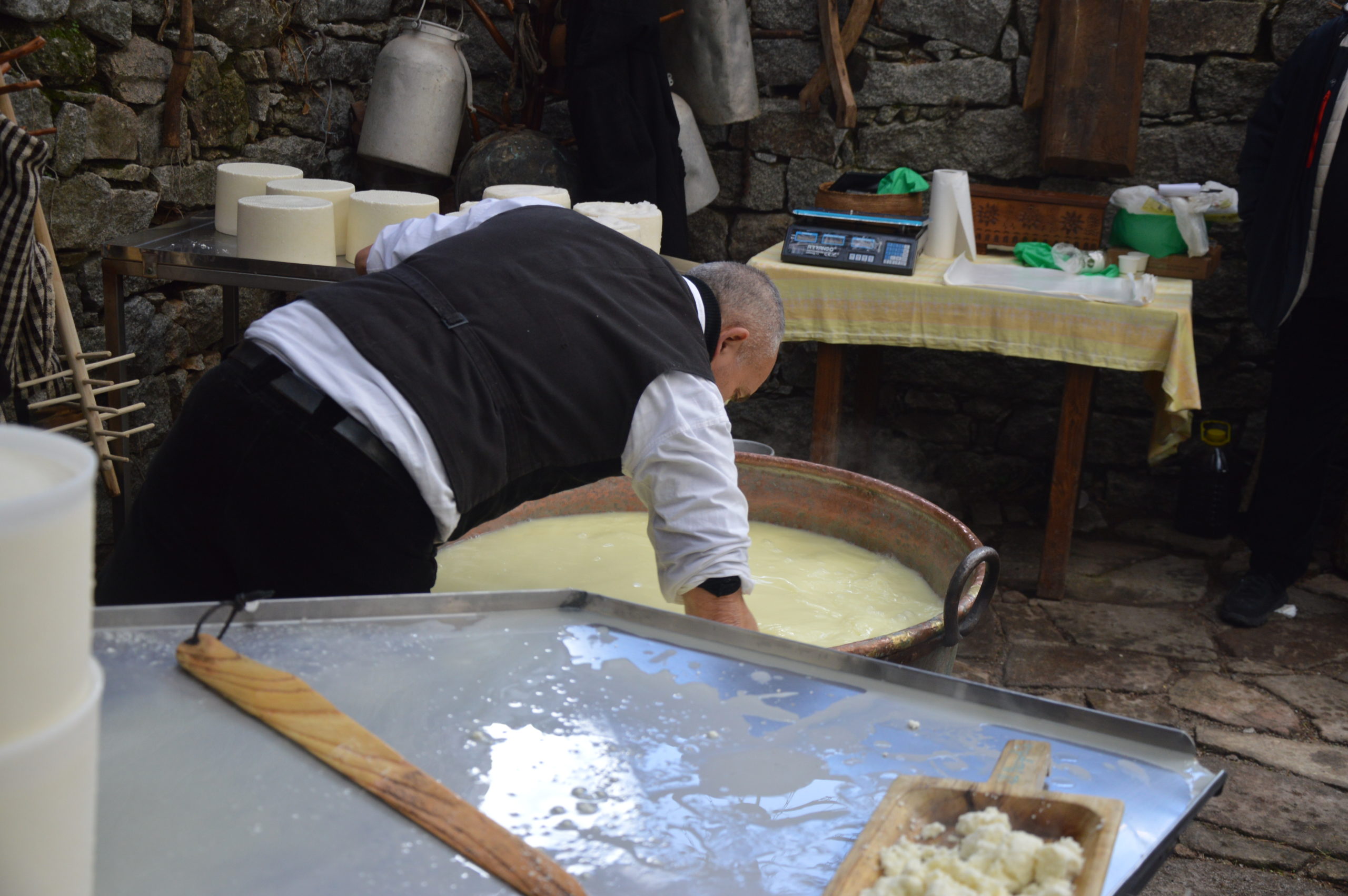
In these systems shepherds consider their animals part of their family. They could not live without their animals and take care of them each and every day, and they see this relationship as a reciprocal exchange between humans, the environment and the animals.
Pastoral systems in Sardinia also maintain a high-degree of multifunctionality in agricultural practice and biodiversity cultivation. Small-scale shepherds integrate several agricultural activities in their work, such as cultivating their own hay for their animals, growing their own vegetables, organic olive oil production, organic wine production, with many having a variety of animals and trees, plants in their farms.
Traditional systems also require the local wild biodiversity to thrive and co-exist with the animals and farming activity. Especially as animals are deeply integrated and are used for the maintenance of marginal, and wild territories. For example, sheep and goats that graze in the mountainous wild areas, where fire risk in the current hot summers is higher, help keep the ecosystem in balance. Small-scale shepherds are not deforesting to make space for their farms, but are integrating the animals in the wild environment, taking care of the risk of overgrazing through a small amount of animals for extensive areas.
Nonetheless, over the past fifty years, along with the modernization & industrialization processes in agriculture and livestock farming, the dairy and meat industry in Sardinia has grown to unprecedented rates, switching to intensive animal cultivation and large-scale export of local products (milk, dairy products, and meat). Replacing the well-structured, local community exchange networks and local food economies where shepherds would traditionally sell their products to their local communities, contributing to the local economy and providing fresh genuine food to the territory.
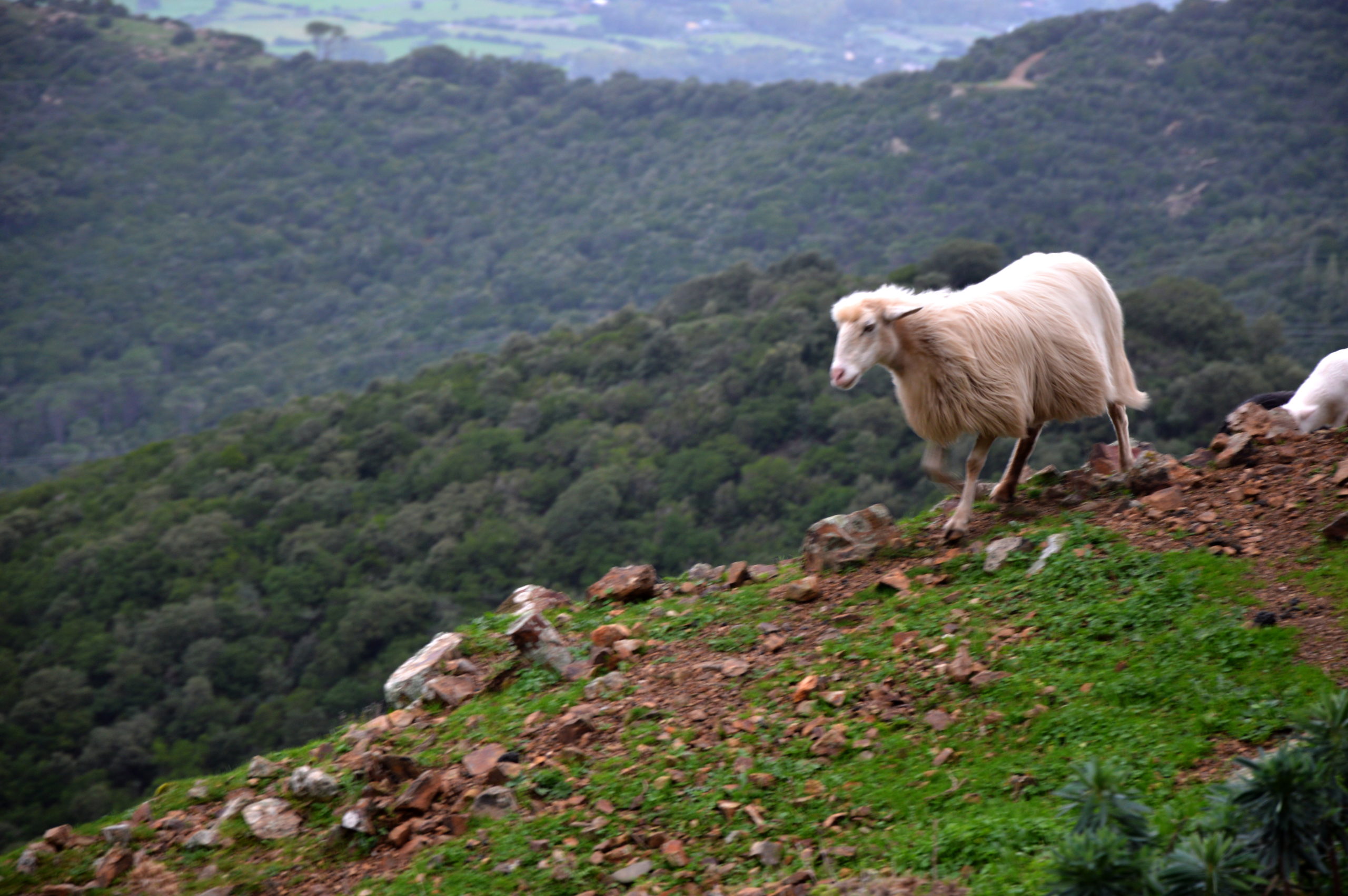
In this context many traditional small-scale shepherds and farmers are struggling to survive with many traditional shepherds and pastoral communities disappearing. Therefore, the Sardinian context stands as a lively battlefield between small-scale, traditional, multifunctional shepherds and farmers and large scale, industrialized farms and dairy producers.
The disappearance of these communities means much more than just the transition of farmers to other forms of work. It means a loss of deep cultural ties, intimate knowledge of the Sardinian territory. With their work so dependent on natural cycles and wild ecosystems, shepherds have acquired a profound and ancient knowledge of the territory.
They know their land more than anyone else and continue to inhabit inhospitable areas that would otherwise be abandoned. With their knowledge they are able to actively monitor changes in climate, water availability and the health of the soils. If agro-pastoral tradition is lost, so is the cultural heritage, identity, local economy and liveness of local communities in Sardinia. Real food and a crucial example of real sustainable practices that are being disregarded by current reductionist climate change solutions.
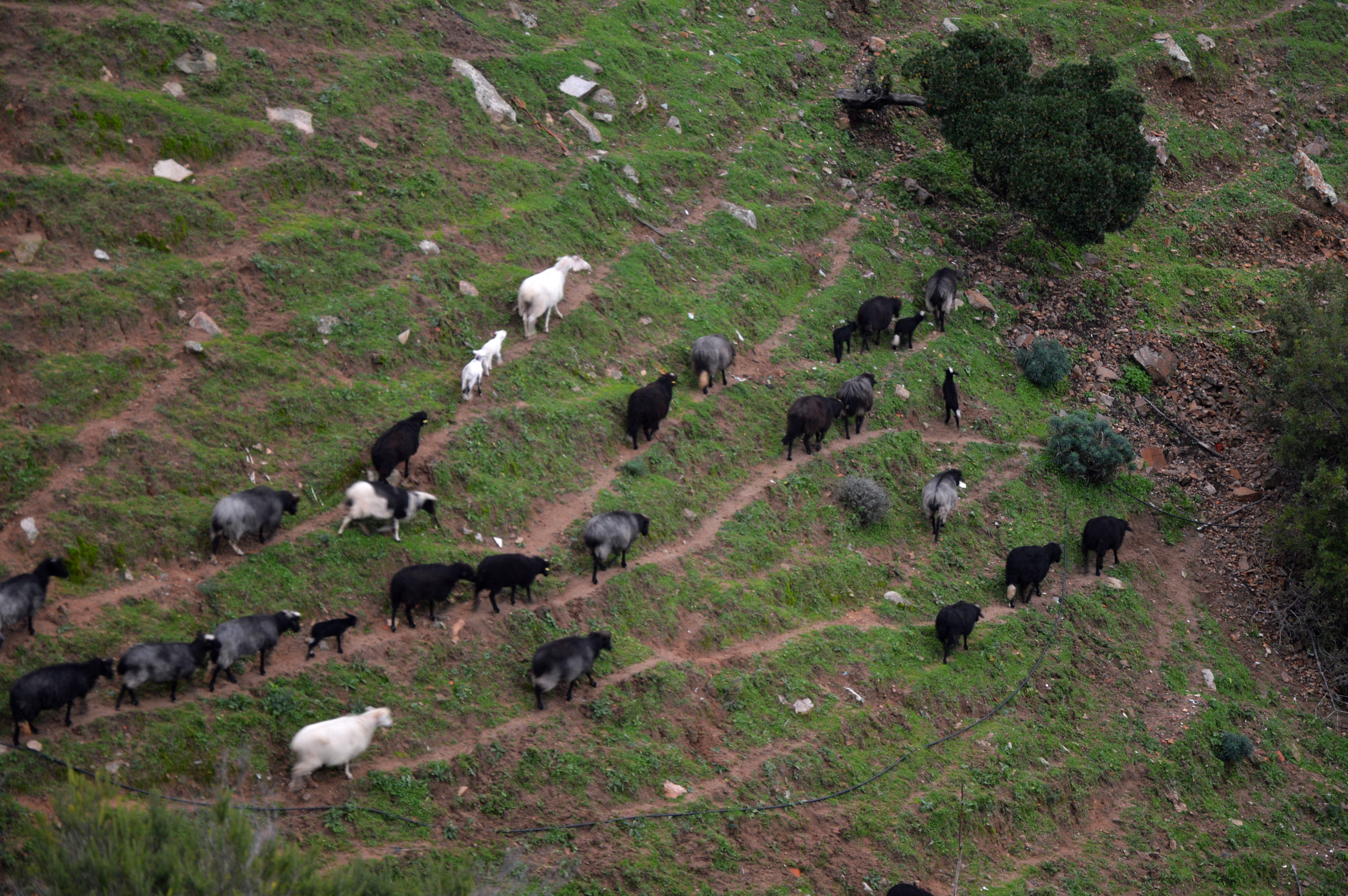
What about Fake Food
The case of fake food is emblematic, among the false solutions that are threatening land-based cultures and as a consequence of the false narrative that do not consider the huge difference between large scale animal farming in industrial food systems and the role of animals in ecological small-scale farming systems, like the ones in Sardinia.

Proponents of fake food claim that it provides a real solution to climate change, and environmental degradation, due to it not needing intensive water and land resources, while also addressing concerns over animal greenhouse gas emissions and animal welfare in the admonished meat industry. However, the true purpose could not be further away from ending climate change or world hunger.
These technologies represent a new wave of the patenting logic that was first applied to seeds during the Green Revolution. By being able to now fully control the entire food supply chain, from the genetic manipulation of these fake foods, to their lab production, to the distribution chains already controlled by big agribusiness. The Earth and small farmers will no longer be needed, with the exception of the mass monocultures already controlled by agribusiness.
Not to mention that ultra-processed ‘plant-based’ fake, synthetic foods that rely on dangerous technical innovations such as synthetic biology, CRISPR-Cas9 gene manipulation, and new GMOs. These techniques involve reconfiguring the genetic material of an organism to create something entirely new, and not found in nature. Some companies are also investing in cell-based meat, grown from real animal cells. The result is a whole range of lab-grown fake meats, eggs, cheese, and dairy products swarming the market to ultimately replace animal products and alter modern diets.
These foods are now quickly making their way into global markets, as for example, the US government has recently opened the US market to synthetic meat, declaring it safe for human health and authorizing the Californian company Upside Foods to produce laboratory-made chicken meat. The first applications for authorization into the European market could start by this year.
As the agrifood industry is threatened by consumer apathy, big companies that stand to lose significant profits are trying to tap into a new market of environmentally aware consumers looking for alternatives. Hence, the promotion of these synthetic foods is nothing more than a clever way to reorient profits back to the same old companies by re-purposing the destructive technologies of the Green Revolution combined with new biotechnologies as a well-disguised ‘sustainable alternative’.
Real Food cultures
Although it might seem that the issue of fake food is far from the day by day struggles that shepard’s face in Sardinia, local communities, farmers and local movements are well aware of how it represents a present and future threat to their economy, and have been organising events and debates, also thanks to the intense information campaign that has been carried out at national level by civil society movements, including Navdanya International.
Small producers, farmers and shepherds of Sardinia, are very keen on explicitly manifesting what they think is healthy food. To them, real food is food their ancestors would recognize. The foods they’ve eaten since time immemorial. Foods coming from their land, and local cultivation practices. This is especially the case as local food systems have been built through well-structured local community networks, creating a local economy, where shepherds sell their products to local shops or markets or through well-established informal solidarity networks in their communities, contributing to local economy and providing fresh genuine food to the territory.
What is now at stake is the erasure of millennia old food cultures, which throughout time have created complex expressions of culture, territory, and identity all entwined with co-beneficial relationships between agricultural cultivation, animals, wild biodiversity, landscapes and human communities.
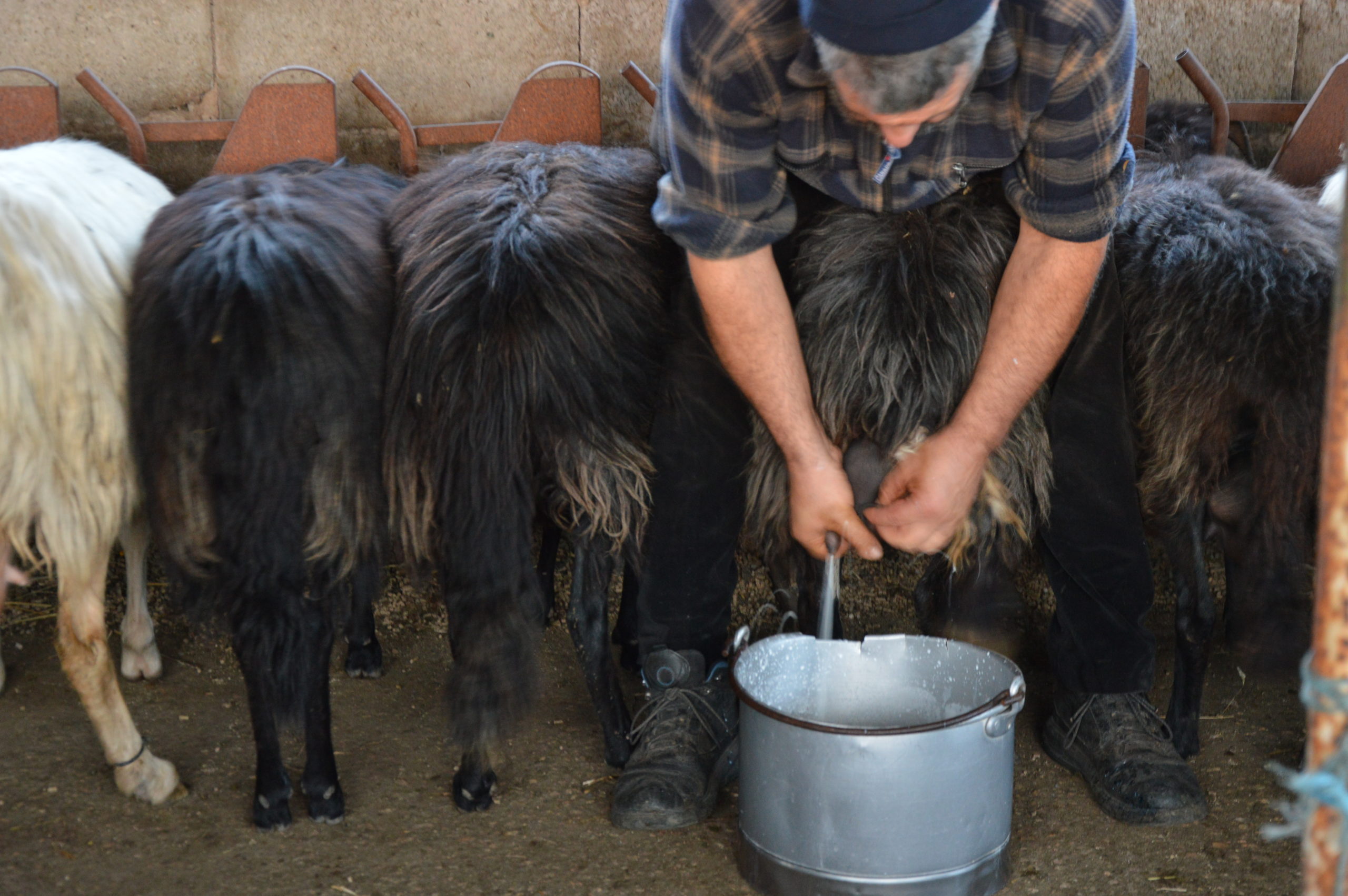
We must see the recentering of economies to be local, circular, and regenerative, in line with ecological rhythms and boundaries that support these symbiotic relationships. Not the destruction of them for the sake of corporate profit and reductionist ideals. The defense of real food, and real food/ land-based cultures is now more important than ever, as it also represents the defense of the small farmer, and the defense of our relationship to life itself.
This means stepping back onto the path of life which has sustained humanity over millennia where communities and cultures have co-evolved in their ways according to their climates, soils, and biodiversity, contributing to the diversity of food and farming systems, weaving biodiversity and cultural diversity symbiotically.
© Navdanya International
Photos and graphics: Navdanya International – where not otherwise specified

